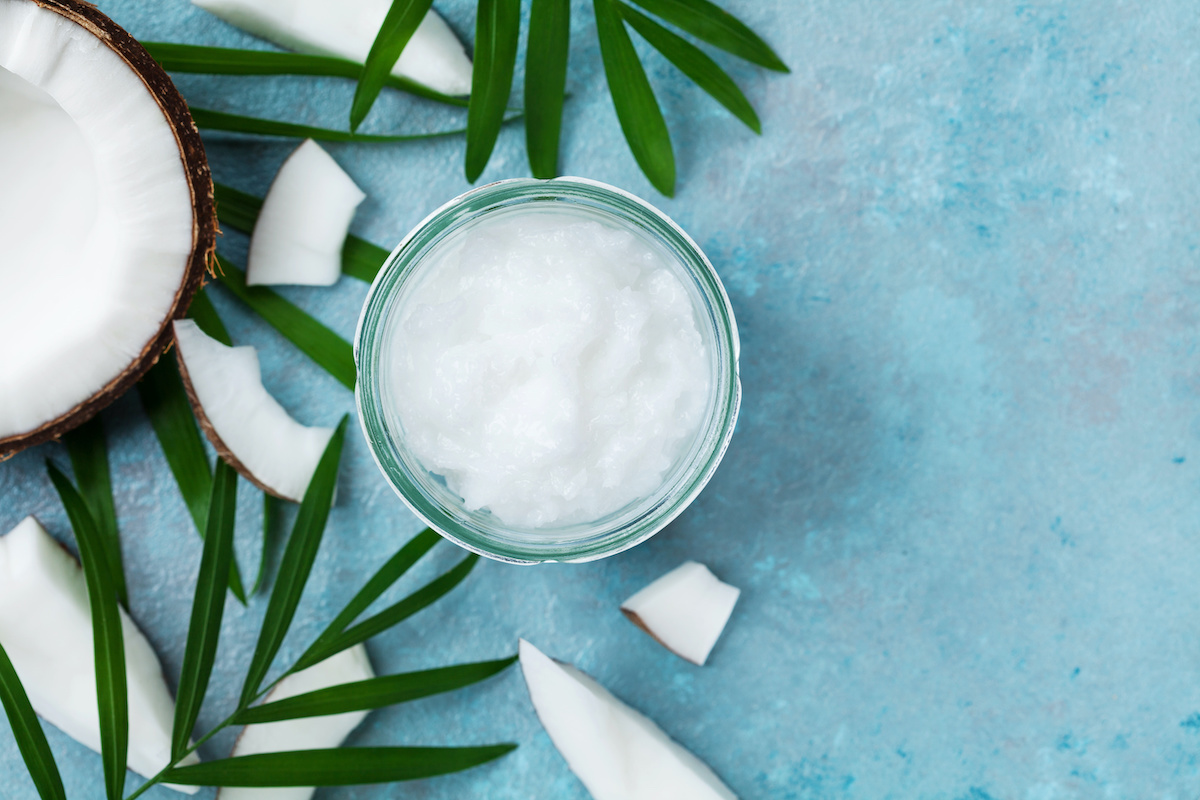What Are MCTs? The Instant Energy Boosters That Help You Feel Full for Longer

As general interest in nutrition, and more so the desire to utilise it for weight loss and training purposes, has grown, certain, previously obscure nutrients and food types have shot up into the public consciousness. One of the most talked about are medium-chain triglycerides (MCTs) — try saying that after a few tipples — naturally occurring fat molecules which are so-called because of the way the carbon atoms are arranged in their chemical structure.
Most of our diet is made up of foods packed to the brim with long-chain triglycerides (LCTs) which have more than 12 carbon molecules. In contrast, only a few foods contain MCTs which have between 6 and 12 carbon molecules. What do all these molecules matter though, and why are foods high in MCTs so coveted by athletes and those looking to lose weight?
The Benefits Of MCTs
Well, originally MCTs were first focused in the clinical nutrition arena. A number of conditions such as short bowel syndrome and celiac disease make properly digesting and absorbing LCTs difficult or impossible.
As MCTs are smaller than other fats, they take a different path to absorption and are absorbed much faster and easier than normal fats. This helps with the issue of malabsorption that is a hallmark of these conditions.
Instant Energy
MCTs instead go straight to your liver, where they can be used as an instant energy source which can come in quite handy when you’re looking for added pep through a strenuous workout. In fact, a 2009 study found that MCTs in a pre-workout drink 30 to 45 minutes before training significantly lowered lactate levels and increased exercise time to exhaustion.
Those molecules that are not used instantly are turned into ketones, substances that are produced from the breakdown of fat when carbohydrate intake is low. This is quite useful for those on a keto diet, when you’re trying to replace carbs as your main fuel source and prevent the storing of fat in adipose tissue.

Full For Longer
MCTs can also be quite useful in increasing satiety and staving off hunger, mainly through activating the release of peptide YY and leptin, two hormones responsible for promoting the feeling of fullness in the body.
A 2014 study from Columbia University, New York, found that when researching MCT oil versus LCT corn oil at breakfast, participants who had taken the MCT consumed an average of between 389 and 532 calories for lunch against the 486 to 804 calories for those who had taken LCT.
Gut Health And Cardiovascular Disease
Studies have also linked the consumption of MCT oil to an improved gut microbiota, and all the relevant benefits that come as a result of that, including healthier immune responses and a more balanced mood. It’s also thought that MCTs could have a profound effect on our cholesterol levels, and as a result a reduction in our overall risk of cardiovascular disease.
A 2018 study published in the BMJ compared the cardiovascular risk factors three oils — coconut, olive, and butter — had on 94 healthy men and women, with the participants divided among three groups and instructed to consume 50 grams of either fat daily for four weeks. The study found that those who consumed coconut oil — which most MCT oil is derived from (more on that later) — had witnessed the largest increase in their high-density lipoprotein levels, the healthful type of cholesterol, than those who consumed butter and olive oil.

Breaking Down The MCT Oils
As previously mentioned coconut oil is the most common ingredient and source in MCT powders and oils, and contains all four of the main medium-chain fatty acids: caproic acid (which has 6 carbon atoms), caprylic acid (8 carbon atoms), capric acid (10 carbon atoms), and lauric acid (12 carbon atoms).
Made from the dried flesh of the fruit, it has an MCT content of around 55 percent, with palm kernel oil running a close second with about the same percentage composition, while milk and butter, two other common sources, come in at the nine percent mark.
Each of these sources has a different composition of those four main acids, with coconut oil containing around 42 percent lauric acid, which the dairy sources have a lower proportion of but a comparatively higher proportion of capra fatty acids.
MCT oil, the concentrated version containing 100 percent MCTs is preferred as a dietary supplement with studies finding it to have a greater effect on feelings of fullness, while coconut oil, by itself and usually without the MCT term added to it, is preferred in beauty products or as a cooking oil.
Life can get busy, and sometimes you need more than a protein shake. Peakblend takes our award-winning vegan protein and adds everything you need to create a perfectly balanced vegan meal.
Enriched with highly functional ingredients like 26 vitamins and minerals, ashwagandha, MCTs from coconut oil, and flaxseeds, Peakblend is designed to support you on your biggest days.


















